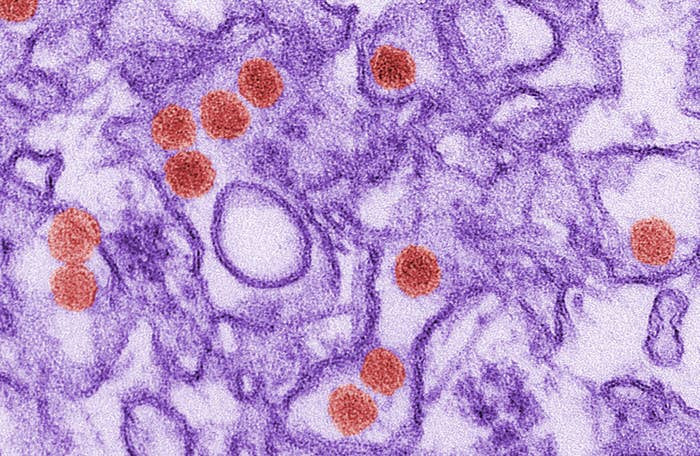
Air travelers may have delivered Zika to Brazil in 2013, genetics researchers suggested on Thursday, well before the 2014 World Cup soccer tournament that is sometimes blamed for the international spread of a virus tied to severe birth defects.
Over the past year, in the wake of the Brazilian outbreak, Zika has spread to 38 nations and territories. However, a new study in the journal Science that looked at genes from seven Brazilian victims of the virus — including a dead newborn with microcephaly — suggests Zika spent at least a year in Brazil undetected, apparently without triggering a burst of birth defects. The first surge of cases of microcephaly, a shrunken head and brain, did not appear until 2015, and have since grown to 863 cases and counting.
“It could be that the number of Zika virus infections in 2013 to 2014 was low, or restricted to a small region, so they weren’t detected,” study author Oliver Pybus of Oxford University told BuzzFeed News by email. “We don’t yet know, so any answer I give you is educated guesswork.”
To backtrack in time and figure out when Zika landed in Brazil, the researchers compared subtle genetic differences between the study virus samples against those from nine other countries that had outbreaks years, and sometimes decades earlier. Viruses acquire slight changes in their genes as they reproduce (which, for Zika, involves going from mosquito to person to mosquito) with a regularity that lets researchers create a “clock” for timing their divergence from each other.
Based on this clock analysis, the researchers pinned the arrival of Zika in Brazil from French Polynesia, as suspected, and timed it to after April of 2013.
The study is surprising because many had assumed the 2014 World Cup in Brazil had helped trigger the outbreak. Instead, the scientists suggest that the culprit was air travelers: Visitors from Zika-infected regions to Brazil have increased from 3,775 a day in 2013 to 5,754 a day in 2015.
“We could have missed it just because this is often a mild disease,” infectious disease expert Jesse Goodman of Georgetown University, who was not part of the study, told BuzzFeed News. What’s more, mosquito-borne diseases such as Zika might require a “critical mass” of mosquitoes to catch an infection, delaying a widespread outbreak that would catch the notice of public health officials.
Another possibility is that Zika may have escaped early detection in Brazil because of the prevalence of other mosquito-borne viruses such as dengue and Chikungunya, Pybus suggested. People infected with Zika can test positive for those diseases even if they don’t have them.
“This is nice, basic work in helping to get a picture of the virus,” infectious disease expert Nikolaos Vasilakis of the University of Texas Galveston Medical Center, who was not on the study, told BuzzFeed News. “But we really need a lot more samples to find more in-depth answers to the role of travel.”
Genetic differences between the French Polynesian Zika virus, linked to birth defects in roughly 1 in 100 pregnancies in one recent study, and the related Brazilian one, linked to microcephaly in 29 out of 100 cases in another, are still under investigation. It’s too early to tell if the difference in birth defect rates is real.
Zika was first described by scientists in 1947 in Uganda, and this African strain is seen as traveling into southeast Asia in subsequent decades, creating a second, closely related strain now at work in the outbreak. “Genetically it is quite distinct,” Pybus said. “ But we don’t yet know if the two strains differ in their propensity to cause disease.
Microbial biologist Marcello Lancellotti of the University of Campinas in Brazil told BuzzFeed News in February that Brazilian physicians were suspicious that a new virus — “dengue that causes a purple rash” he said in Portuguese — was loose there for at least a year before Zika was officially reported last May. The new study may have vindicated those suspicions.
Bruno Romani contributed translation to this story.
